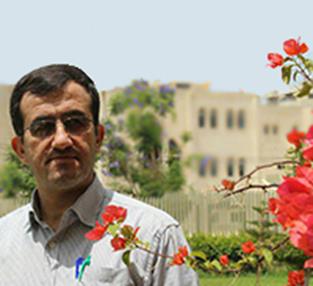Baharieh (on spring)
Selling the Old Is Over
Hamid Ghazvini
Translated by Ruhollah Golmoradi
2019-4-6

- Nowruz is one of the most important connecting rings and one of the most creating identity events for all Iranians, which has a deep link with memory.
One dare say that in civilization area of Iran, there is no one whom Nowruz is not reminded of him sweet memories; from housecleaning and new clothes, nourishment and Eid, visiting up to old rituals.
In childhood, after Eid holiday, for essay credit in school, we should write a few lines about the topic "How did you spend your Nowruz?" And this was a kind of memory-writing.
Interestingly, Nowruz has a distinguished place in memories of political prisoners, holy defense warriors, freed warriors, scientific elites and prominent political and social figures; because Nowruz affects everything. Ms. Tahereh Sajjadi, a Muslim militant during Pahlavi regime who had spent several years in prison, says, "During Eid days, the Joint Committee[1] would be quieter, we heard less yell due to torture, as most interrogators went on vacation. Those who were present also harassed less. Our Eid in the joint committee was that we were allowed to have a meeting. Eid's atmosphere was different in each of Evin, Qasr, and Joint Committee prisons. For example, the Joint Committee had a closed space, but in Evin, It was possible to see a branch of a tree or a bird that promised spring and refreshing. By bread and mouth water, we made small planes and pots. I remember, I created a blossom branch, which revived sense of freshness and spring in my existence. Usually, when they brought children to meeting, I would give them as Eidi the same small planes and like those and drawings that I made in Evin."
2) In the past year, with all its political, economic and cultural ups and downs, promising events took place in field of oral history. Holding workshops and various specialized meetings, initiating and continuing oral history projects and publishing new works, all reflect prosperity of this field and presence of audience and many words to say.
One of the reasons for boom of works related to memory-writing and oral history in recent decades seems to be to increase attention to human dignity in different societies. If oral history leads to democratization of historiography, it must be accepted that this will be realized when it values human regardless of its social status and takes serious its word; oral history, unassuming and in spite of many obstacles, have taken effective steps in this way. Steps that accompanied by participation and welcoming of the citizenry and is an important investment for both sides.
I regard this situation on the brink of spring as a good omen, and I wish everyone a year full of boom and avoiding repetition.
Turn of flea market sellers passed
We are new sellers and this is our market[2]
[1] Anti-sabotage Joint Committee, or Komiteh Moshtarak, was operated by SAVAK under the government of the Shah of Iran against political opponents.
[2] Ghazal 424 in Divan-e Shams.
Number of Visits: 5015








The latest
Memoirs of Hujjat al-Islam Reza Motalebi
Hujjat al-Islam Reza Motalebi is a cleric from Isfahan. Before the revolution, he was the imam of the Fallah Mosque – which was later renamed Abuzar Mosque. By his presence and efforts, Abuzar Mosque soon became a base for supporters of the Imam and the revolution. After the victory of the revolution, he played a role in uniting forces and maintaining political vitality in southwest Tehran.The Necessity of Receiving Feedback in Oral History
Whenever we engage in a task, we naturally seek ways to evaluate our performance — to correct shortcomings and enhance strengths. Such refinement is only possible through the feedback we receive from others. Consider, for instance, a basketball player whose shots are consistently accurate; should he begin shooting blindfolded, his success rate would rapidly decline, as he would be deprived of essential feedback from each attempt.Sir Saeed
The book “Sir Saeed” is a documentary [narrative] of the life of martyr Seyyed Mohammad Saeed Jafari, written by Mohammad Mehdi Hemmati and published by Rahiyar Publications. In March 2024, this book was recognized as one of the selected documentary biographies in the 21st edition of the Sacred Defense Book of the Year Award. The following text is a review on the mentioned book.Morteza Tavakoli Narrates Student Activities
I am from Isfahan, born in 1336 (1957). I entered Mashhad University with a bag of fiery feelings and a desire for rights and freedom. Less than three months into the academic year, I was arrested in Azar 1355 (November 1976), or perhaps in 1354 (1975). I was detained for about 35 days. The reason for my arrest was that we gathered like-minded students in the Faculty of Literature on 16th of Azar ...

